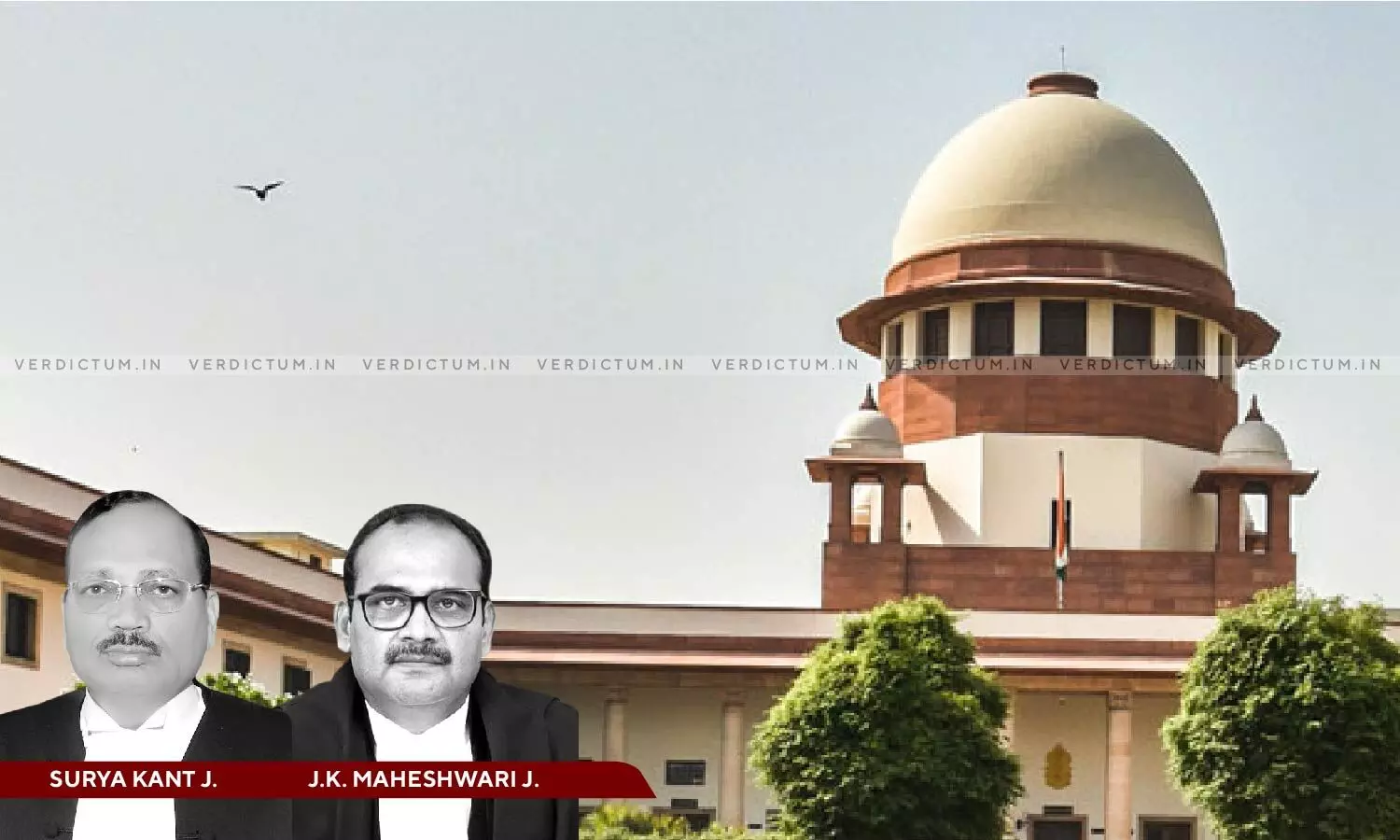
PCA: CBI Should Carry Out Free, Fair & Dispassionate Probe With Faithful Observance To The Rights Of Accused- SC
 |
|The Supreme Court has recently observed that the CBI (Central Bureau of Investigation) is expected to carry out a free, fair, and dispassionate investigation with faithful observance of the rights of an accused, who is subjected to custodial interrogation.
The two-Judge Bench of Justice Surya Kant and Justice J.K. Maheshwari said, “Assuming Respondent No. 1 had some valid apprehensions that the actions of ACB (State Police) were actuated with extraneous reasons, he can no longer say so once the investigation has been transferred to CBI. We do not find any allegation of personal vendetta, victimisation, bias or ulterior motive against the Central Agency. In any case, CBI is expected to carry out a free, fair and dispassionate investigation with faithful observance to the rights of an accused, who is subjected to custodial interrogation.”
The Bench also noted that Section 17A of the Prevention of Corruption Act, 1988 (PCA) merely contemplates that police officers shall not conduct any inquiry or investigation into any offence alleged to have been committed by a public servant where the alleged offence is relatable to any recommendation made or decision taken in discharge of official functions or duties, without the previous approval of the competent authority.
Solicitor General Tushar Mehta and Senior Advocate Maninder Singh appeared for the appellants while Senior Advocates Mukul Rohatgi, Narendra Hooda, and Shyam Divan appeared for the respondents.
Brief Facts -
The Court was deciding the appeals wherein one of the appellants was CBI. The appellants were aggrieved by the order passed by the Gujarat High Court allowing the anticipatory bail application filed by the respondent in connection with the FIR registered before CBI/ACB/Gandhinagar Police Station, District Gandhinagar for the offence under Section 7 of the PCA as amended in 2018.
The complainant was a businessman engaged in the construction business. In the year 2019, the respondent i.e., an IRS Officer, posted as Additional Commissioner of Income Tax, Ahmedabad, conducted a survey for the financial year 2018-19 under Section 133A of the Income Tax Act, 1961 against the company of the complainant whereunder the group disclosed an additional income of Rs. 50 crores.
The Supreme Court after hearing the contentions of the counsel asserted, “The contention that prior approval of investigation, as mandated under Section 17A of Prevention of Corruption Act, has not been obtained and thus, the proceedings initiated against Respondent No. 1 stand vitiated, has no legal or factual basis. … A prior approval or sanction to investigate such an officer in a trap case is likely to defeat the very purpose of trap and the investigation, which is not the underlying intention of the legislature.”
The Court said that the investigation against the respondent, being accused of demanding a bribe, did not require any previous approval of the Central Government and that apart, the accusation against him does not revolve around any recommendations made or decisions taken by him in his quasi-judicial or administrative capacity.
“It is true that cancellation of bail must be done only for cogent and overwhelming reasons. Nevertheless, setting aside an unjustified order granting bail is distinct from cancellation of bail. This Court would not, invariably intervene into the judicial discretion exercised by the High Court while granting bail to an accused. All that to be ensured is that the High Court exercises its discretion judiciously, cautiously and strictly in conformity with the basic principles laid down by this Court from time to time in a series of decisions”, noted the Court.
The Court further said that howsoever hard or harsh it may be, the High Court ought to have refrained itself from extending protection against arrest to the respondent in exercise of its discretionary jurisdiction under Section 438 of the CrPC.
Accordingly, the Court allowed the appeals, set aside the judgment of the High Court, and dismissed the anticipatory bail application of the respondent.
Cause Title- Central Bureau of Investigation v. Santosh Karnani & Anr.